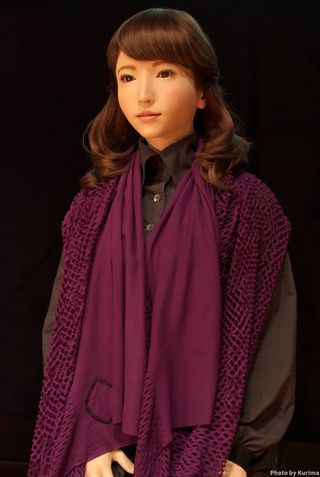Fear
What Would You Rather Tell a Robot Than a Human?
New research suggests people would rather disclose negative feelings to a robot.
Posted September 8, 2017

When we talk to people, we choose how much personal information to disclose about ourselves. How much we reveal, both in terms of breadth and depth, depends on many factors. In a therapeutic context, it is considered desirable to self-disclose, yet people sometimes hold back negative personal experiences, due to fear of being judged or revealing their weaknesses.
Researchers Takahisa Uchida and colleagues from Osaka University hypothesized that people may find it easier to disclose their negative feelings to a robot due to its lower social position. The findings of their preliminary research were presented at the 2017 Robot and Human Interactive Communication symposium in Lisbon in August.
In this Japanese study, participants were introduced to three “counselors” – a human female; a realistic humanlike female robot (the android ERICA); and a small clearly non-human robot (CommU). They were asked to choose which of the three counselors they would prefer to talk to about 45 different items, including positive, negative, and neutral experiences.
The human counselor was preferred by 70 percent of participants for talking about positive experiences, compared to 30 percent who preferred either of the two robots. About half the participants chose the human counselor for neutral topics, and half chose either of the robots. However, less than half the participants chose the human counselor for discussing negative experiences, while the majority chose one of the robots. The android ERICA was the most popular choice for talking about jealousy, while the small robot CommU was the most popular choice for talking about emotional immaturity or being emotionally hurt.
It is not clear why participants made these choices, but participants did report feeling less close to the robots than to the human counselor, and feeling more dominant compared with CommU; roughly equal in stature with the android; and less dominant compared with the human counselor. The authors suggest that we may be more willing to disclose our weaknesses to robots due to our higher perceived social status preserving our esteem.
This research builds on internet-based counseling programs in which people feel more anonymous when revealing their thoughts and feelings. Studies show that people are more likely to feel safe disclosing their private thoughts without fear of being judged in this context. This paper also demonstrates how the appearance of the robot is important, with the android ERICA being judged more intelligent but less emotionally skilled than the smaller CommU robot. The research contributes to the ongoing development of technology to expand the availability of mental healthcare.
References
Uchida, T., Takahashi, H., Ban, M., Shimaya,J., Yoshikawa, Y., and Ishiguro, H. (2017) A robot counseling system –What kinds of topics do we prefer to disclose to robots? Proceedings of the 26th IEEE International Symposium on
Robot and Human Interactive Communication (RO-MAN), Portugal, 207-212.


